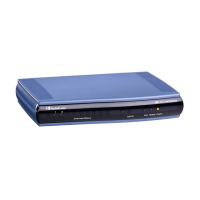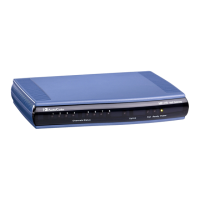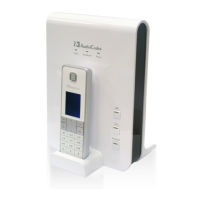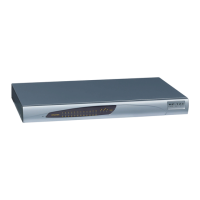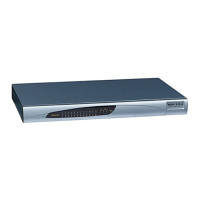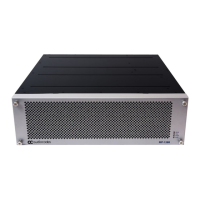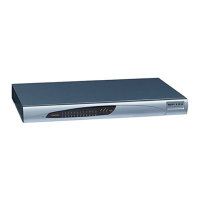CHAPTER30 SBC Overview
Mediant 1000 Gateway & E-SBC | User's Manual
This feature supports the following:
■ Attended, unattended, and semi-attended call transfers
■ Sending INVITE, REFER-notifications, BYE, PRACK and Session Timer on behalf of peer
PBXs
■ Advanced routing rules for the new, initiated INVITE
■ Forwarding early media after REFER while attempting to avoid transcoding (by sending
session update)
■ Interoperate with environments were different SIP UAs lack basic SIP functionality such as re-
INVITE, UPDATE, PRACK, Delayed Offer, re-INVITE without SDP
■ Session updates after connect to avoid transcoding
The handling of REFER can be configured for all calls, using the global parameter
[SBCReferBehavior]. To configure different REFER handling options for different UAs (i.e., IP
Groups), use the IP Profiles table parameter, 'Remote REFER Mode'.
■ Local handling of REFER: This option is used for UAs that do not support REFER. Upon
receipt of a REFER request, instead of forwarding it to the IP Group, the device handles it
locally. It generates a new INVITE to the alternative destination according to the rules in the IP-
to-IP Routing table (where the 'Call Trigger' field is set to REFER). It is also possible to specify
the IP Group that sent the REFER request, as matching criteria for the re-routing rule in this
table ('ReRoute IP Group ID' field).
■ Transparent handling: The device forwards the REFER with the Refer-To header unchanged.
■ Re-routing through SBC: The device changes the Refer-To header so that the re-routed
INVITE is sent through the SBC application.
■ IP Group Name: The device sets the host part in the REFER message to the name configured
for the IP Group in the IP Groups table.
Interworking SIP PRACK Messages
The device supports interworking of SIP Provisional Response ACKnowledgement (PRACK)
messages (18x). While some UAs may not support PRACK (RFC 3262) others may require it. The
device can be configured to resolve this interoperable issue and enable sessions between such
endpoints. SIP PRACK handling is configured using the IP Profile parameter, 'SBC Prack Mode':
■ Optional: PRACK is optional for these UAs. If required, the device performs the PRACK
process on behalf of the destination UA.
■ Mandatory: PRACK is required for these UAs. Calls from UAs that do not support PRACK are
rejected. Calls destined to these UAs are also required to support PRACK.
■ Transparent (default): The device does not intervene with the PRACK process and forwards
the request as is.
Interworking SIP Session Timer
The device supports interworking of the SIP signaling keep-alive mechanism. The SIP standard
provides a signaling keep-alive mechanism using re-INVITE and UPDATE messages. In certain
setups, keep-alive may be required by some SIP UAs while for others it may not be supported. The
device can resolve this mismatch by performing the keep-alive process on behalf of SIP UAs that
do not support it.
To configure the handling of session expires, use the IP Profile parameter, 'SBC Session Expires
Mode'.
- 748 -
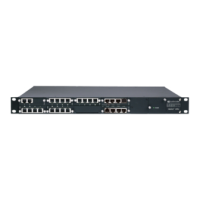
